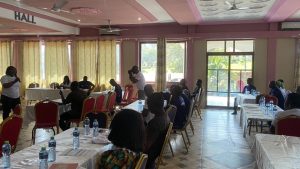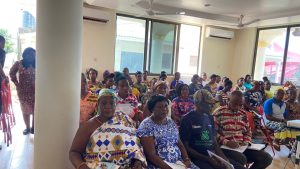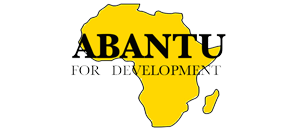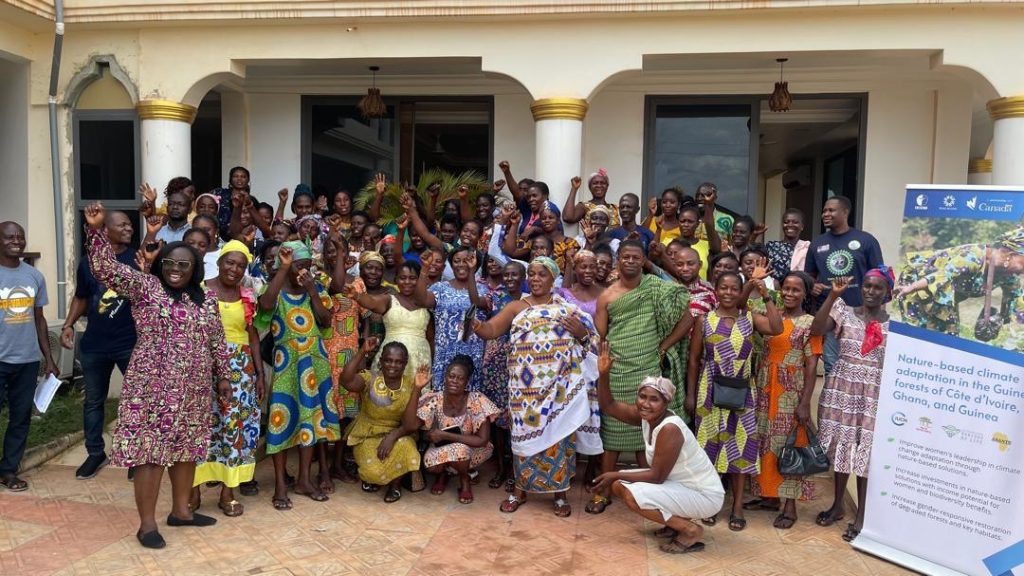In the enchanting landscapes of Lake Bosomtwe and Wassa Amenfi in Ghana, the WUSC-CECI
consortium in partnership with ABANTU for Development successfully launched the innovative
“Nature-Based Climate Adaptation in the Guinean Forests of West Africa” project,
otherwise known as the “NbS Guinean Forests” project on Monday, April 22, 2024 and
Wednesday, April 24, 2024 respectively. With funding from the Global Affairs Canada, the project
is being implemented with a strong focus on gender responsiveness, aimed at addressing the pressing
challenges of climate change and promoting sustainable development in the Guinean forests of Africa.
The project’s launch was a momentous occasion, marked by a series of gender training workshops,
conducted by ABANTU. These training workshops empowered local communities, fostering a deep
understanding of the importance of gender equality and the role of women in climate adaptation efforts.
Participants gained valuable knowledge and skills to actively engage in the project, ensuring that the
voices and perspectives of women were central to its success.
As the NbS Guinean Forests project gained momentum, several highlights emerged. Local women, armed with newly-acquired knowledge and empowered by ABANTU’s trainings, pledged to take the lead in implementing climate adaptation measures. From sustainable farming practices to community-based natural resource management, these women are passionate about becoming agents of change, driving resilience and fostering sustainable development in their communities.
Looking ahead, the next steps of the project promise even greater impact. ABANTU for Development, in collaboration with key local stakeholders, will continue to work hand in hand with the communities to implement innovative climate adaptation strategies. The project will focus on strengthening women’s leadership, promoting gender-responsive policies, and fostering sustainable livelihoods in the face of climate change.

Why should stakeholders be involved?
The answer is simple, yet profound! By engaging in this project, stakeholders have the opportunity to contribute to a transformative movement that recognizes the critical role of gender equality in climate resilience. By supporting and actively participating in ABANTU’s gender-responsive project, stakeholders can help shape a more inclusive and sustainable future for the landscapes of Lake Bosomtwe and Wassa Amenfi in Ghana, where the voices of women are amplified, and the environment thrives.
ABANTU for Development’s partnership with the consortium, WUSC-CECI, will work tirelessly to
implement a comprehensive strategy that prioritizes gender equality and climate resilience in the
implementing Lake Bosomtwe and Wassa Amenfi landscapes in Ghana. We are truly inspired to witness the power of collaboration in creating a positive change with our esteemed partners’ (the consortium) expertise and dedication that play a crucial role in the success of the NbS Guinean Forests project.
Join us in this journey towards a more resilient and gender-responsive world. Together, we can make a lasting difference for the communities and the environment we cherish.

